【TNF Journal】Business’s New Relationship with Disabilities(Part 17)Why does JAL have an in-house nail salon service for staff?
– Staff enthusiasm inspires a new business –
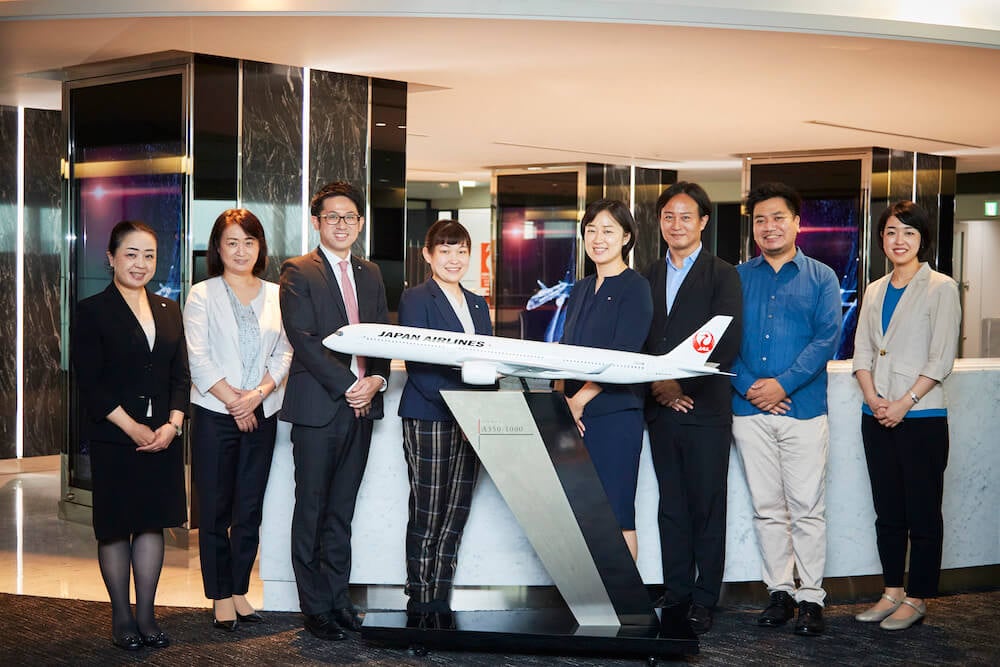
Key Points in this Article
- A JAL Group in-house “nail salon” was established in response to aspirations of female employees of JAL Group’s special subsidiary JAL Sunlight
- JAL Group places importance on employee aspirations for broadening work areas for persons with disabilities
- Expanding workplaces where persons with disabilities can play an active role will also expand the diversity and inclusion of the company
Reporting: The Nippon Foundation Journal Editing Department
Since its founding in 1951, the JAL Group (external link) has led the airlines industry in Japan through various arms of its business including passenger sales, reservations and ticketing, freight transport and aircraft maintenance, and staff with disabilities have played a vital role in many business areas of JAL.
In March 2021, JAL’s special subsidiary* JAL Sunlight Co. Lt. (external link) also established a nail salon for employees as an innovative initiative, and this salon is staffed by “nailists” with disabilities.
- * A subsidiary that gives special consideration to promoting the stable employment of persons with disabilities
In an environment where employment options for persons with disabilities has been limited over the years, ongoing efforts are being made throughout the world to change this situation. In what context does the JAL Group view the opening of this nail salon in terms of such efforts? Members of the Nippon Foundation Working Group* conducted an interview for this article to learn more about this initiative.
- * Members who engage in research and planning at The Nippon Foundation, whose aim is to accelerate the participation of persons with disabilities in society.
To learn about the JAL Group’s initiative to open a nail salon, we interviewed four employees of the JAL Group: Ms. Momoko Ueno (D&I Promotion Group, Human Resources Strategy Department, Japan Airlines), Mr. Tomo Odake (Planning & Operation Group, CX Planning & Support Department), Ms. Tomoe Ogawa (Nail Salon Founding Project Team Leader, JAL Sunlight Co., Ltd.) and Ms. Eri Ikeda (Nailist).
A new business is born from staff input
Yamada: I am Yuhei Yamada of the Nippon Foundation Working Group. First of all, I was very surprised to hear that JAL was opening a nail salon.
Ms. Ogawa: One of the female staff of JAL Sunlight put forward the idea that it might be convenient for cabin attendants to have a nail salon.
In 2018, JAL Sunlight established the Business Contest Program in JAL Sunlight. The aim of this committee is to expand work areas in which employees with disabilities can play active roles, and the committee has been soliciting ideas from employees widely. This committee is an organization that allows staff of all levels from new recruits to management to freely express their ideas. The idea for the nail salon was selected from among ideas submitted to the committee in fiscal 2020.
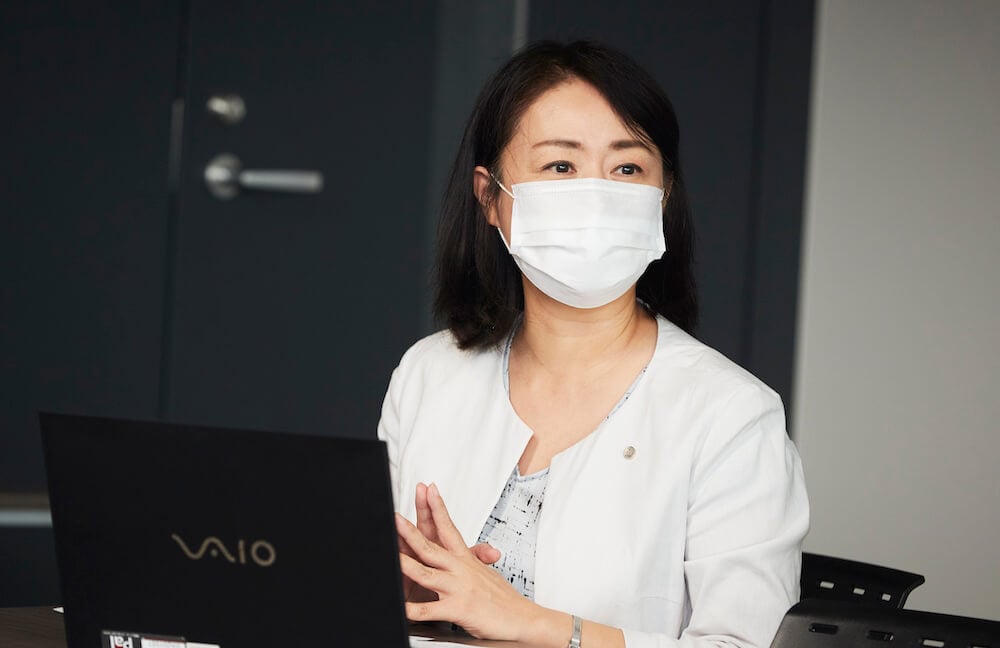
Yamada: So, it was a plan initiated by an employee of JAL Sunlight! About how many JAL employees have used the nail salon so far?
Ms. Ogawa: In the six months since its opening, about 400 staff have used its services. The majority of our customers are female employees but male employees also come to the salon for services such as hand care.
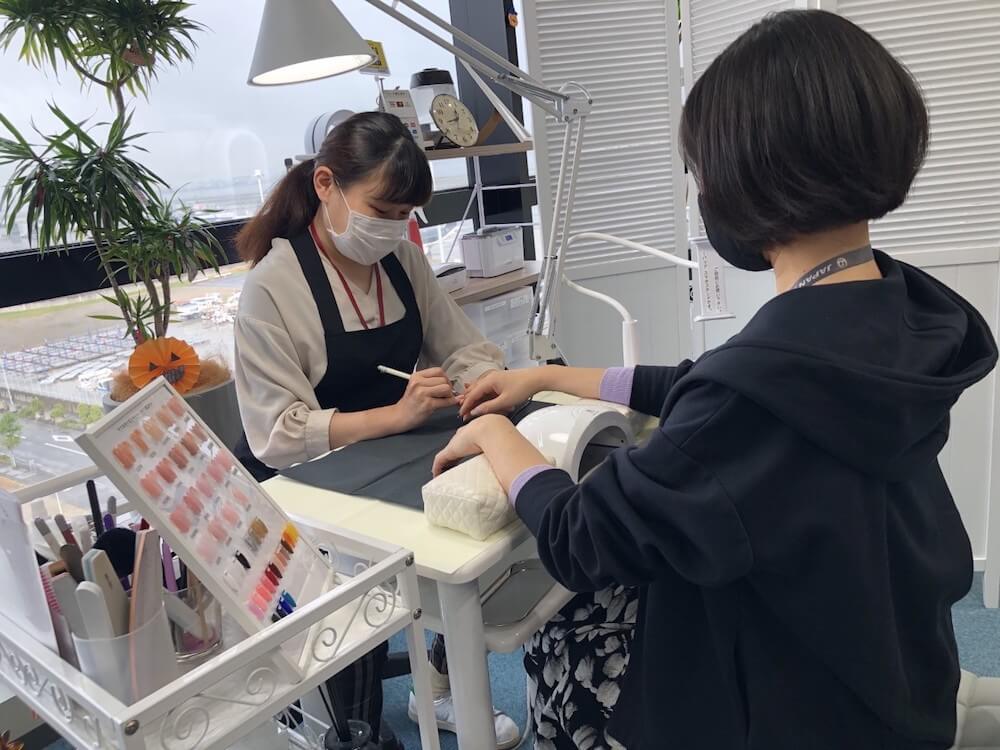
Yamada: How has the response from staff been?
Ms. Ogawa: It is mandatory for cabin attendants of the JAL Group to look after their nails as part of their personal grooming. They are not allowed to use colors that are too loud, and proper standards regarding the color and design of nails have also been established. Our nail salon has assembled many more usable colors within these standards than ordinary nail salons, and we often hear remarks from cabin attendants about how truly happy they are about the service. Since the salon is located within the Haneda Airport area, staff can also coordinate the timing of their visits either before or after work. Even if the color should come off just one of their nails, they can drop in the salon and have it quickly repaired. We hear remarks from staff about how convenient they find this service.
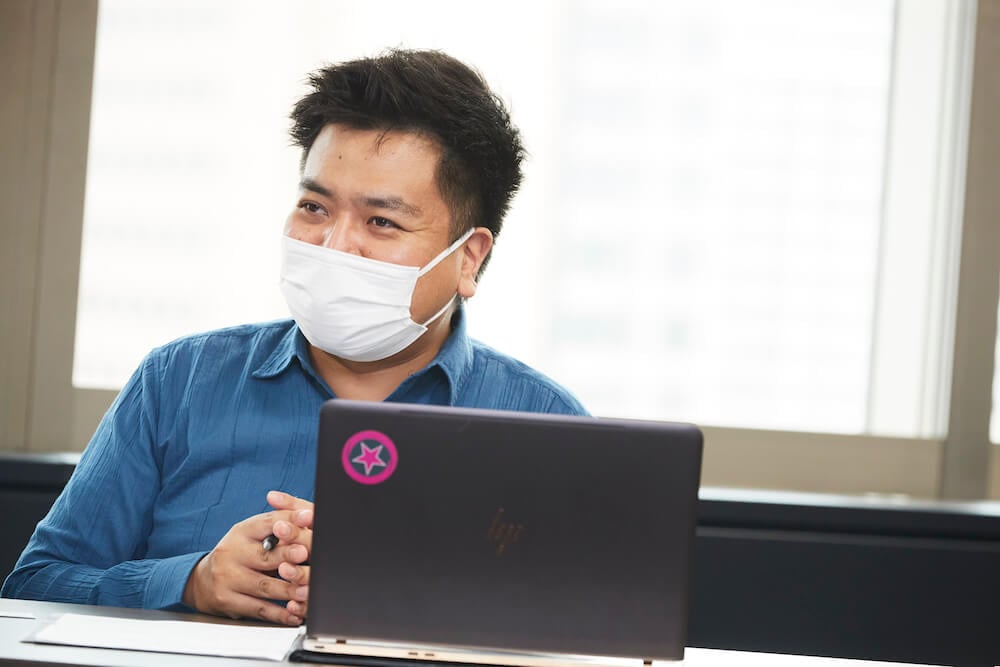
Nail salon as a means of broadening employment opportunities for people with disabilities
Yamada: I imagine it is quite rare for an airline to establish a nail salon. Did you encounter any difficulties in the lead up to its launch?
Ms. Ogawa: We had a lot of difficulties in recruiting nail technicians. To open a nail salon, we wanted to be sure we could provide proper skills after all. However, there were no nail technicians among our existing staff, and when we advertised our recruitment of persons with disabilities who had passed the technical skills test for nail technician1 or nail specialist2 and had at least one year experience, the response was not very encouraging. Even when we searched individually, it was still difficult to find the right people, but in the end we were able to recruit nail technicians through connections with people who supported the purpose of our project.
- * 1. A certification test conducted by the Japan Nailist Examination Center (JNEC) aimed at enhancing correct skills and knowledge of nail technicians, which is useful for practitioners. Introduced in 1997, the test has the longest history and success as a qualification in nail technology.
- * 2. A skills test conducted by the NPO International Nail Association aimed at testing correct knowledge and skills useful in the salon work of nail specialists.
While we were looking for nail technicians, we heard that many nail technicians with disabilities were unable to find work, and even if those with qualifications lacked practical experience. Therefore, we are currently exploring initiatives we can pursue for persons in that predicament.
Yamada: Now, I would like to ask some questions to Ms. Ikeda, who is actually working in the nail salon. Did you feel any anxiety when you started working for the JAL Group?

Ms. Ikeda: I have hearing disabilities, and when I started working for the JAL, there was not much information about the working environment compared with ordinary nail salons. Therefore, I felt unsure about whether I would be able to properly check details of the services customers wanted, and whether I was capable of providing the desired services to customers. However, once I actually started to work, I was surprised to find many employees in the JAL Group have an understanding of disabilities.
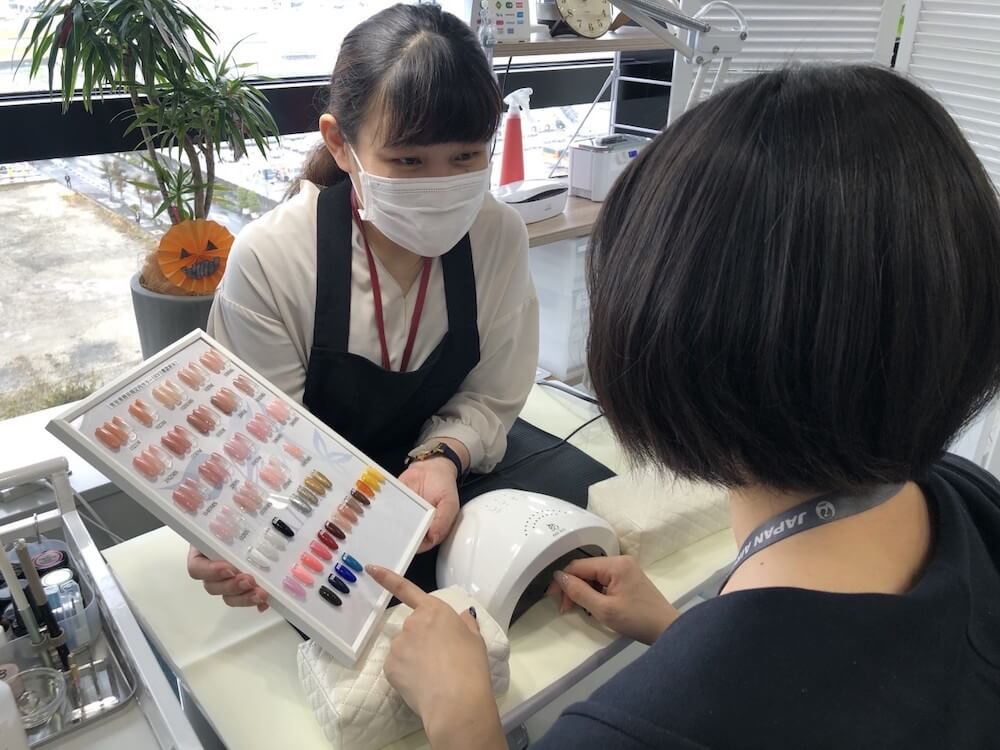
Yamada: What do you mean by have an understanding of disabilities?
Ms. Ikeda: For example, many of them not only speak slowly with great care but also actively engage in conversation and some have even learned signing.
Ms. Ueno: The nail salon is also a quiet, relaxing place for employees. From the salon, they can watch airplanes take off as they get their nails done. Many employees seem to come here for a moment’s respite, away from the hustle and bustle of work, and they appreciate the pleasant personalities of the nail technicians.
Yamada: It is a wonderful space, isn’t it? I would also like to use the service (laughs).
Ms. Ikeda: Many come to visit us on a regular basis, so we look forward to the opportunity to be able to chat about various topics such as work as well as personal matters. It is very rewarding to see people’s look of satisfaction after receiving our services.
Yamada: You are also building good relationships with your customers. Ms. Ikeda, what advice would you give to employers who are contemplating hiring people with disabilities?
Ms. Ikeda: As an employee of JAL Sunlight, I hope that an environment where persons with disabilities can work will become widespread throughout Japan in the future. I also hope that our nail salon will serve as an inspiration in the development of new businesses.
Izutsu: I am Takashi Izutsu of the Nippon Foundation Working Group. I would also like to ask Ms. Ogawa some questions. In addition to the nail salon, what other businesses has JAL Sunlight’s New Value Creation Committee been instrumental in creating?
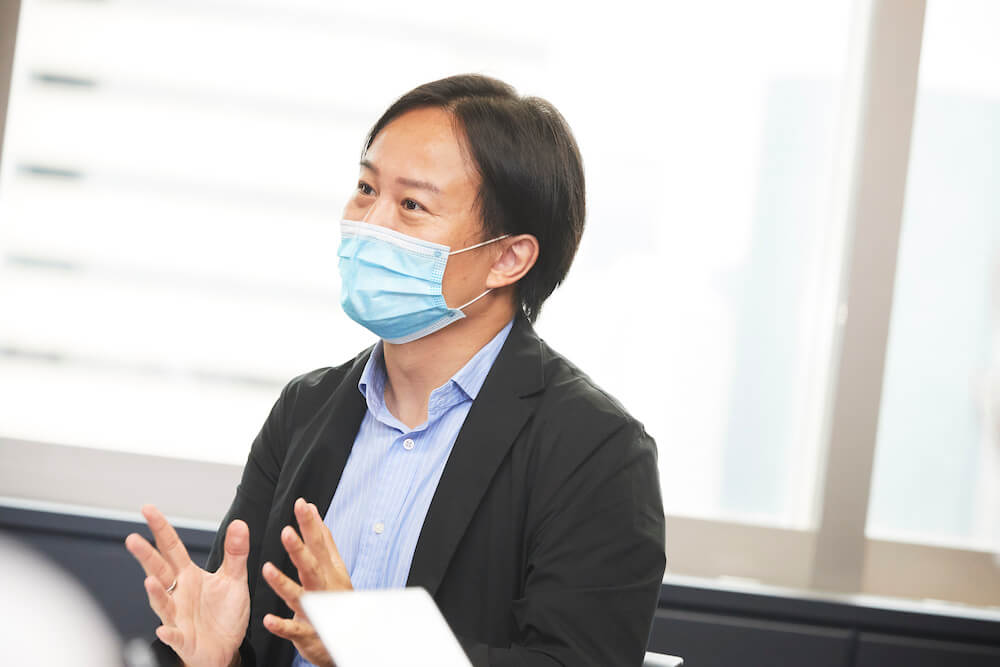
Ms. Ogawa: The nail salon is the first commercial venture launched by the committee. However, we have also taken on initiatives where employees gain work experience in agriculture or learn Robotic Process Automation (RPA)* and then provide their skills to JAL Group companies.
- * Automation using robots of routine tasks performed by humans on the computer
Izutsu: I understand that JAL Sunlight is involved in a variety of initiatives. Could you please give details of some of them?
Ms. Ogawa: As a business, we undertake work such as data processing and adjustment of airline tickets as well as operational support for flight attendants and cockpit crew. You could say that our main role is to support staff in the JAL Group and to respond to their daily needs and life plans. In addition, we also operate businesses such as SKY CAFE Kilatto, which is run mainly by staff with intellectual disabilities, and Massage Room Largo, which is mainly run by staff with visual disabilities.

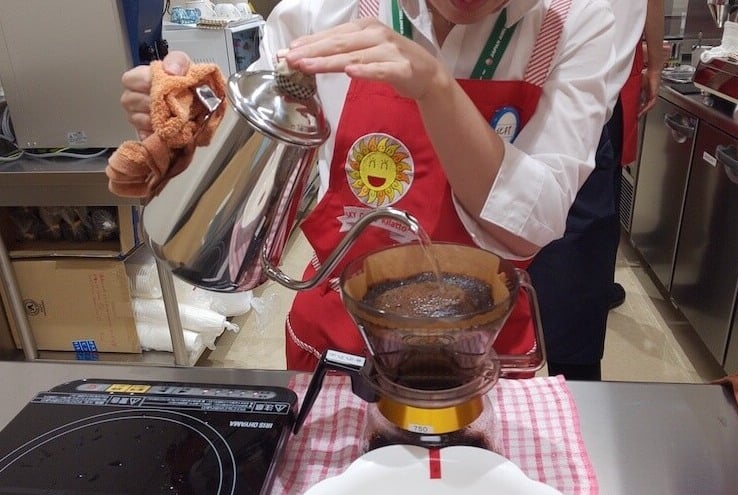
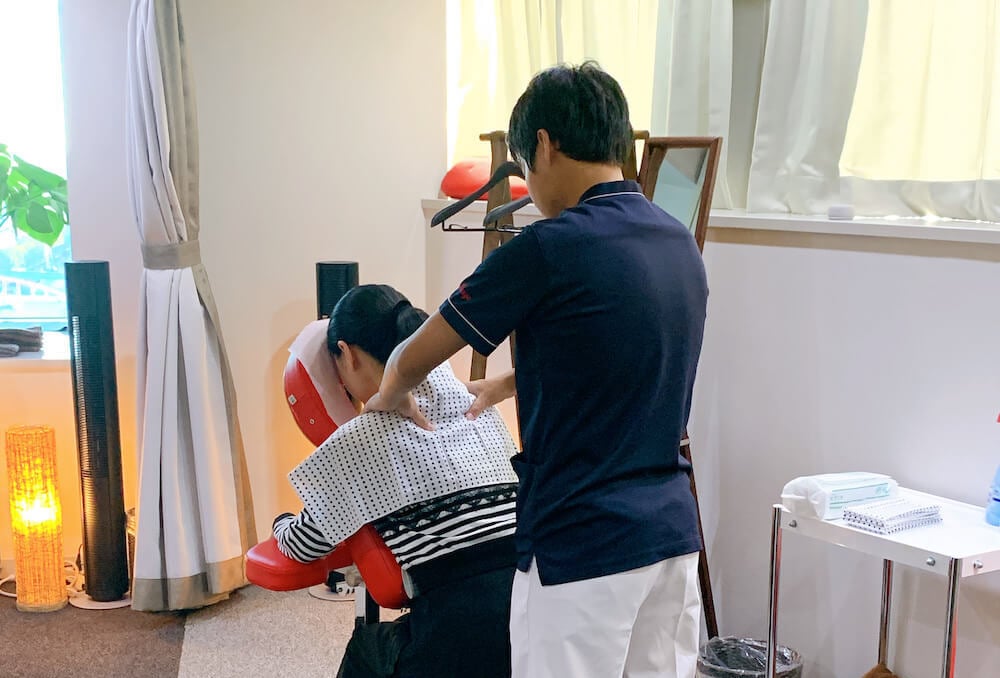
Yamada: Are you considering any new initiatives at JAL Sunlight at present?
Ms. Ueno: We are moving ahead with commercializing other ideas from the Business Contest Program as well as continuing to take on the challenge to make the most of the individual strengths of our employees, rather than limiting their work to initiatives such as the nail salon. We hope that this kind of approach, including efforts such as the nail salon, will eventually create opportunities that we can provide not only to JAL Group employees but also to JAL customers as services.
Together with staff with disabilities, we aim to improve services
Izutsu: You are making a lot of wonderful inroads. At the same time, I believe there are still barriers within and outside companies to hiring people with disabilities and creating a comfortable working environment. In that respect, what efforts is the JAL Group promoting as a group?
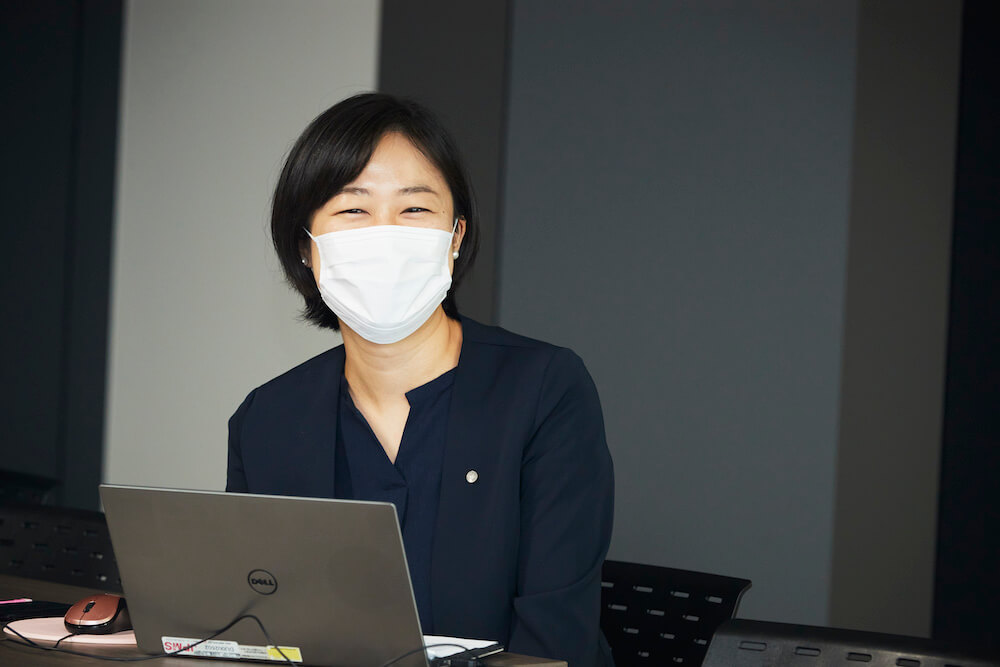
Ms. Ueno: In 2014, the JAL Group issued its Diversity Declaration as one of its top-priority commitments. This declaration promotes not only the active participation of employees with disabilities but also the active participation of women and an understanding of LGBTQ.* While listening to the voices of our employees and in tune with the times we live in, JAL has been working to create a work environment where everyone can work in a positive, encouraging environment.
- * A general term for sexual minorities and an acronym that stands for the following sexual minorities: lesbian (female homosexual), gay (male homosexual), bisexual, transgender (a person who feels at odds with the gender when he/she was born as), questioning (persons unsure of their own gender or the gender of the other person they fall in love with).
More than half of the employees at JAL Sunlight and more than 650 employees in the JAL Group as a whole have disabilities and are assigned work based on their personal attributes, abilities, and suitability. These staff are playing active roles in broad areas in various JAL Group companies including business planning (generalist) at Japan Airlines, and we believe that increasing their opportunities to interact with diverse people on a daily basis will improve the understanding of persons with disabilities among our staff at an individual level.
Izutsu: That is certainly true. Do such efforts have a positive impact on the JAL Group’s overall business and services?
Ms. Ueno: I believe they do. Some of our customers, such as those with disabilities, those with children, and the elderly also experience barriers in movement. Within the JAL Group, we (including our staff with disabilities) are always trying to take the time to learn from our customers by asking questions such as, “In what circumstances do you experience difficulties?” or “What kind of service do you think would make your situation more convenient?” Such feedback from our customers is useful for improving the JAL Group’s services as well as in conducting staff training.
Mr. Odake: Just the other day, a staff member with disabilities joined a group I belong to. It’s a group that promotes the planning of services for customers. Based on feedback from various customers, flight attendants and airport staff, we aim to improve accessibility,* and are now working on the development of new services as well as improvement in our existing services.
- * This means “ease of access” or “ease of use,” and refers to the state and degree of use by various people irrespective of age and whether or not they have disabilities.
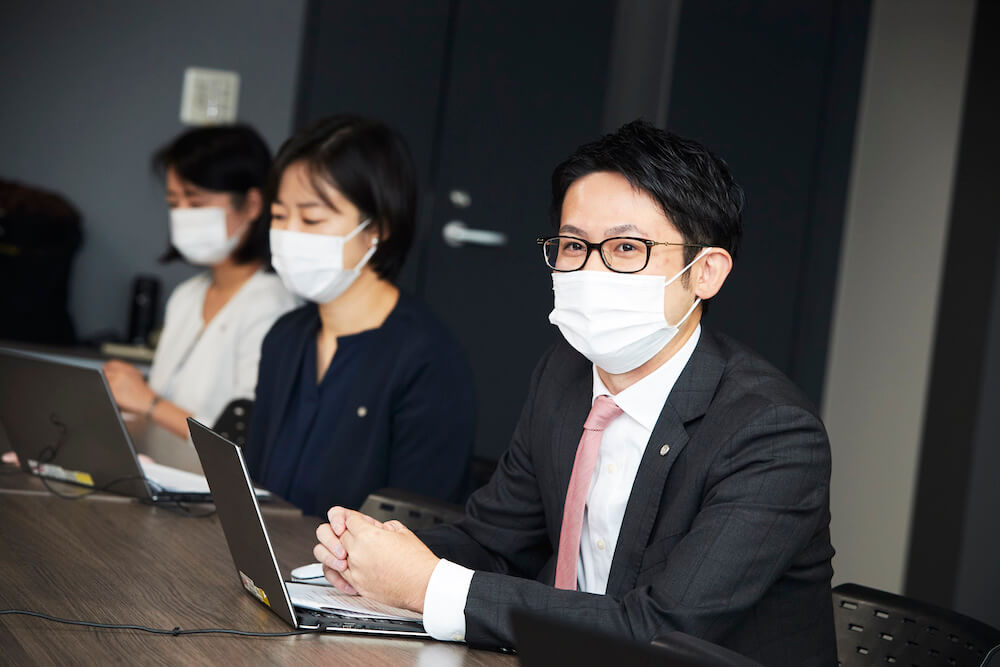
Yamada: I understand that the JAL Group was among the first Japanese companies to become signatories of “The Valuable 500” (external link), a global network organization that promotes social participation of people with disabilities. What are your expectations for the future?
Ms. Ueno: I hope that the JAL Group’s efforts will be of some help to companies that are willing to make efforts to promote diversity and inclusion. * Furthermore, The Valuable 500 is comprised of businesses that hail from a wide variety of sectors, so it is a very useful platform for exchanging information. By sharing information about the kinds of initiatives other companies are taking, and how they are applying them to their products and services, we hope that we will be able to apply advanced technologies of other companies in the aviation industry, and perhaps even cooperate in the development of new technologies.
- * Creation of a society where everyone can play an active role based on mutual respect and acknowledgment of diversity of race, gender, age, and the existence of disabilities.



